Meet the Palestinian artist putting a candy-coloured twist on traditional glassmaking
Designer Lameice Abu Aker is bringing joy and optimism to a time-honoured craft
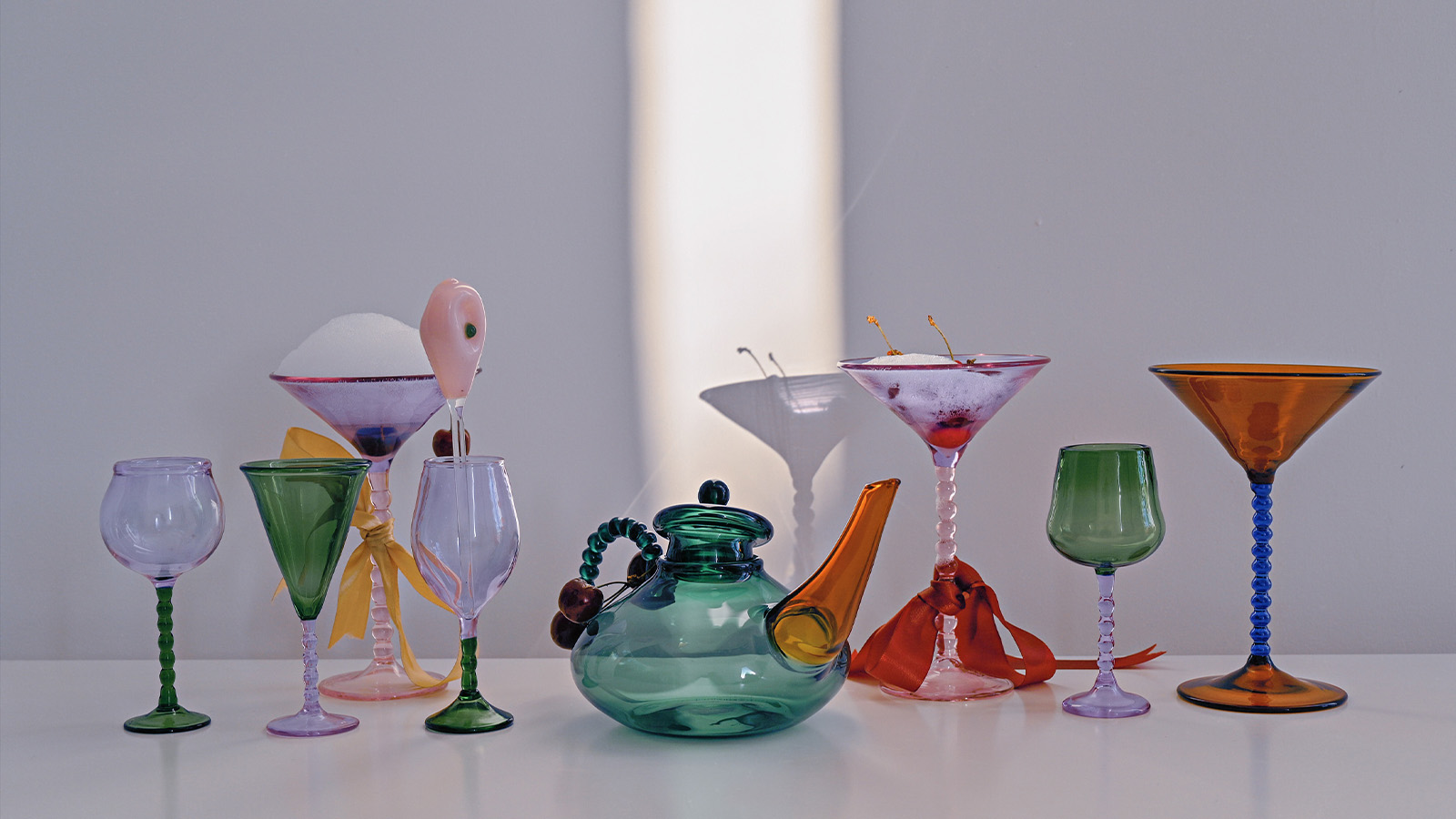
Remember display cabinets? Those off-limits enclosed shelves that displayed treasured possessions for all to see? Perhaps there was one in your grandma or auntie’s home, and to touch something before you were of the proper age invited strict reprimand. Jerusalem-based Palestinian glass artist Lameice Abu Aker is all-too-familiar with this experience. In fact, her grandmother’s home and the warm memories of family gatherings have inspired her collections of swirling, candy-coloured domestic objects.
‘There was an emotional drive for me to create these pieces and I think the forms just followed,’ Abu Aker says.
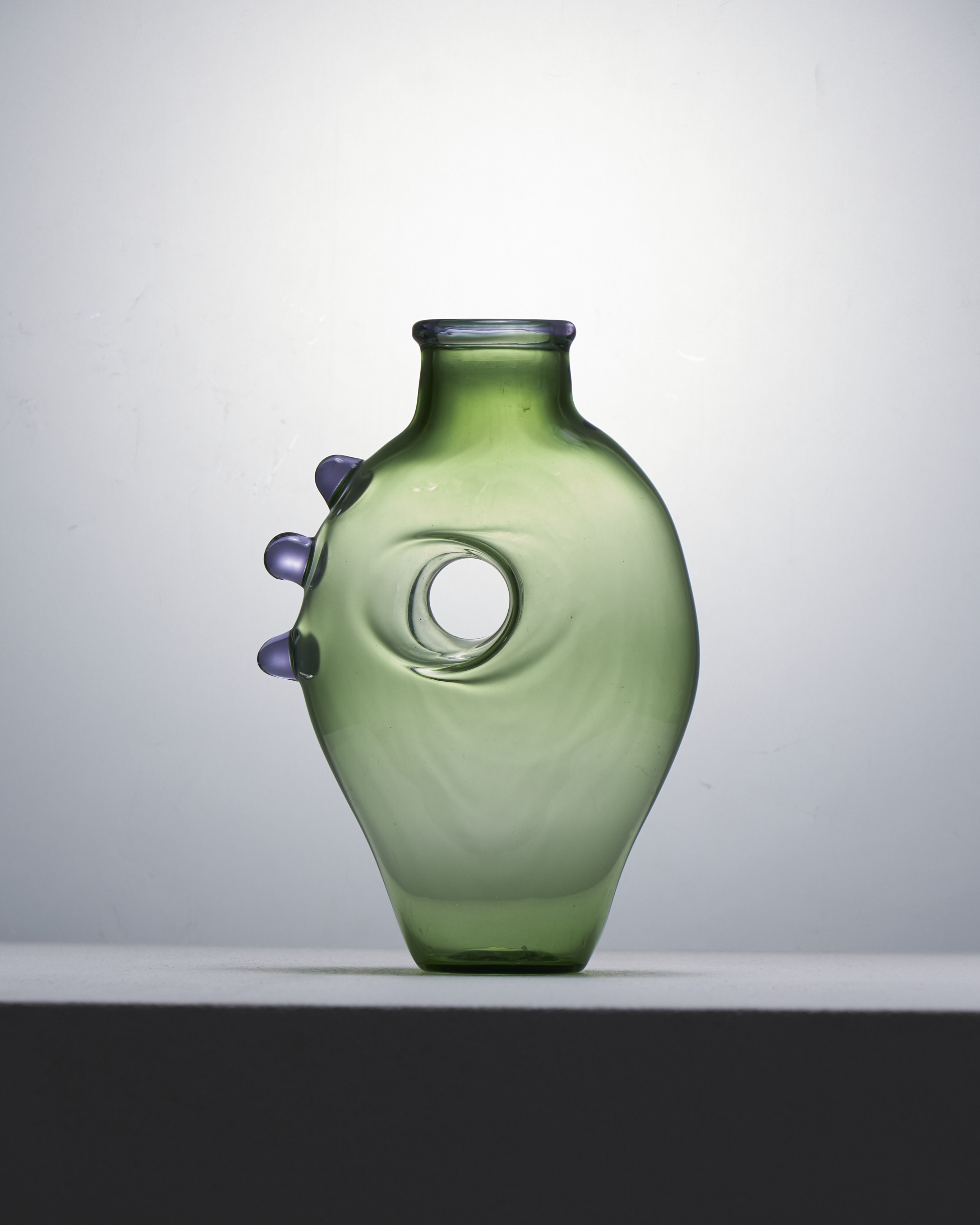
Her company, Ornamental by Lameice, was created during the Covid-19 pandemic. Abu Aker had been working on a project about Palestinian heritage and identity and stumbled on the work of glassmaker families who have practiced the craft for generations. Glassblowing is believed to have originated in the region and has been practiced for millennia, resulting in beads, glassware and jugs commonly sold in local markets.
Abu Aker realised that their ancient techniques could be reinterpreted in a more contemporary way; she wanted to offer pieces that are at once modern heirlooms and testaments to a time-honoured craft. ‘I wanted to express myself through glass and create things that are a little bit awkward, whimsical and fun,’ she says. ‘I also wanted the works to be conversation starters.’
A local Palestinian family, the Twams, were sceptical at first but excited to collaborate.
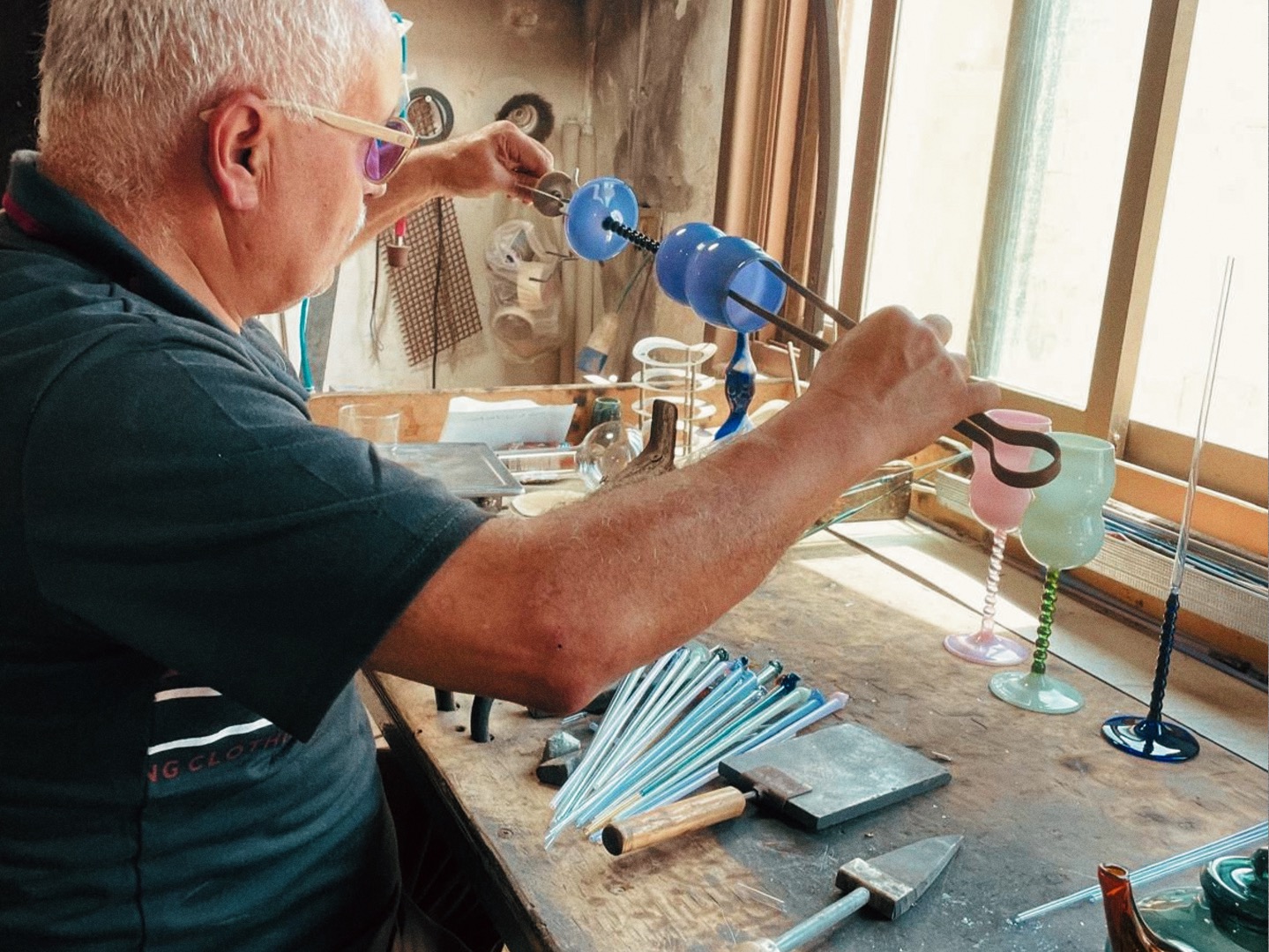
Abu Aker’s process often begins with sketches and 3D models, but the final results rarely adhere to these initial plans. During production, the artisans avoid machinery, cutting tools, or even moulds to better allow the molten material to express itself.
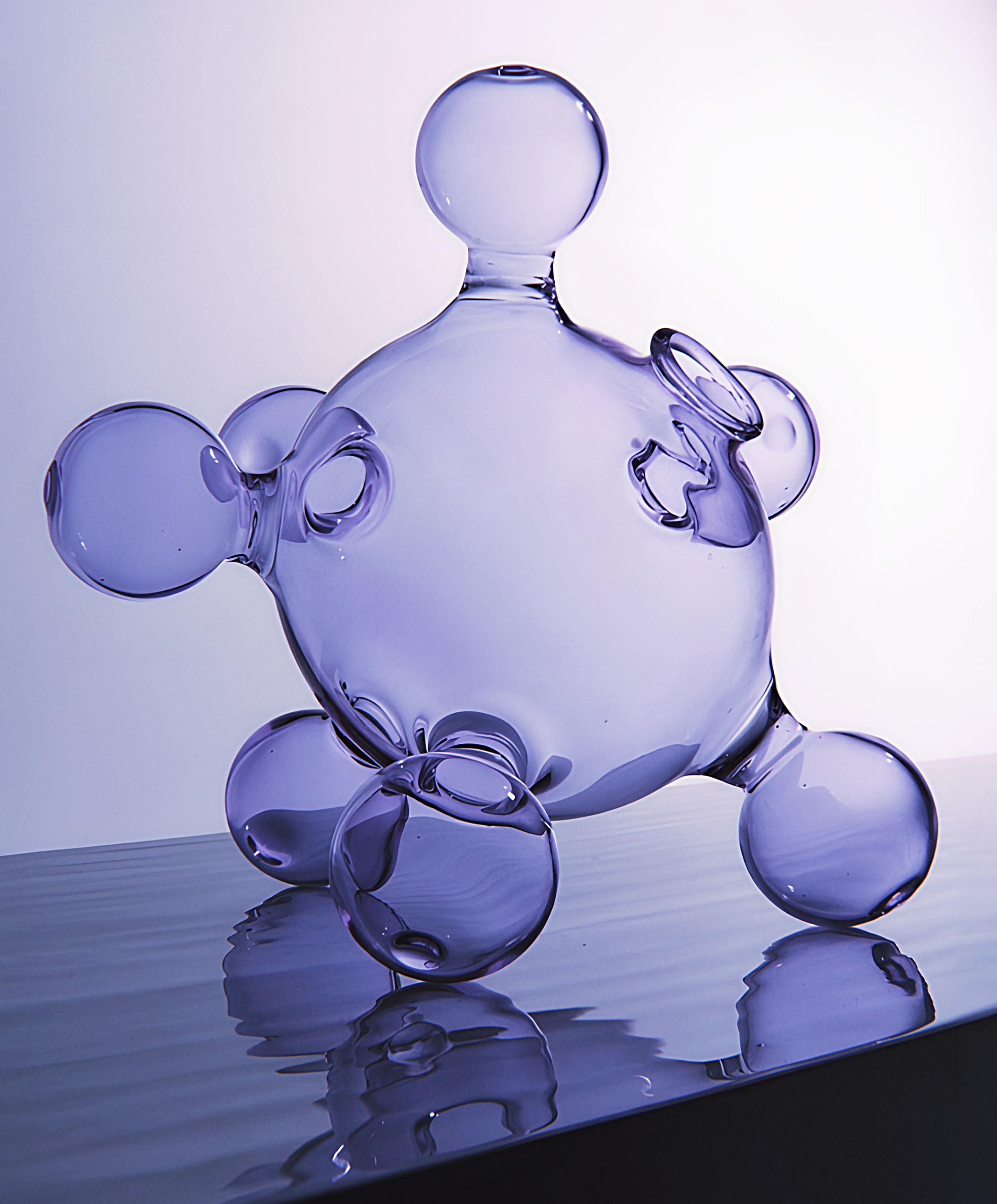
Take Abu Aker’s Eye Candy Saucer. ‘We initially wanted it to be flat with a small twist, but while making it the glass flipped suddenly due to the intense heat leaving it shaped like a balloon,’ she says. ‘I loved it. Glass is such a rebellious material; it doesn't like to listen to anyone and has its own personality. What I like to do is enhance that.’
Receive our daily digest of inspiration, escapism and design stories from around the world direct to your inbox.
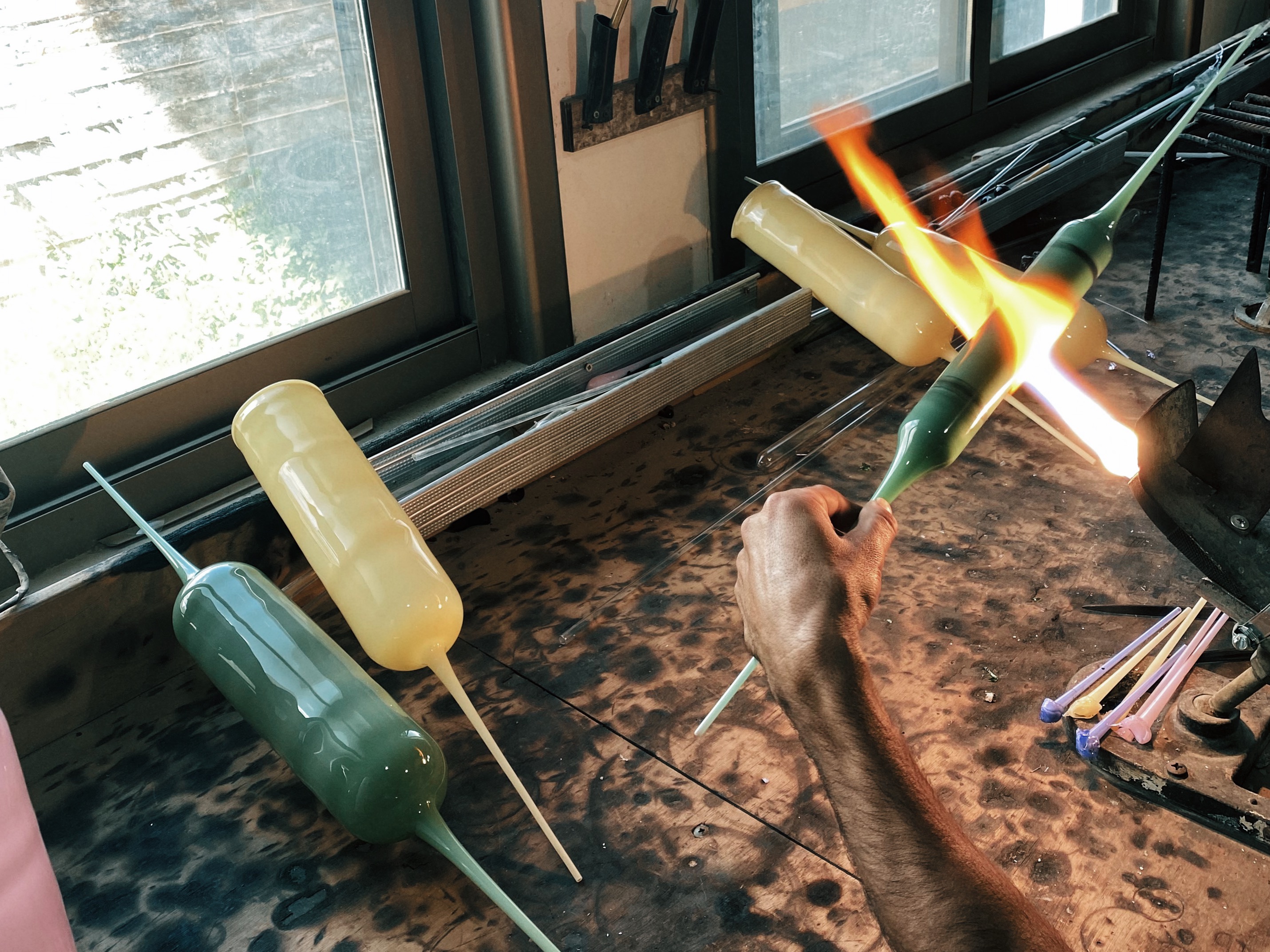
She favours pastel colours that best reflect her personality and her optimism. The Twam family had never worked with those hues before and had to learn how to handle the material, as those colours tend to be trickier to handle. In that way, Ornamental by Lameice pieces are deeply collaborative.
‘There are times when we have been experimenting and come up against a hurdle,’ she says. ‘The artisan would wake up in the night with a solution, write it down so we could experiment the next day.’
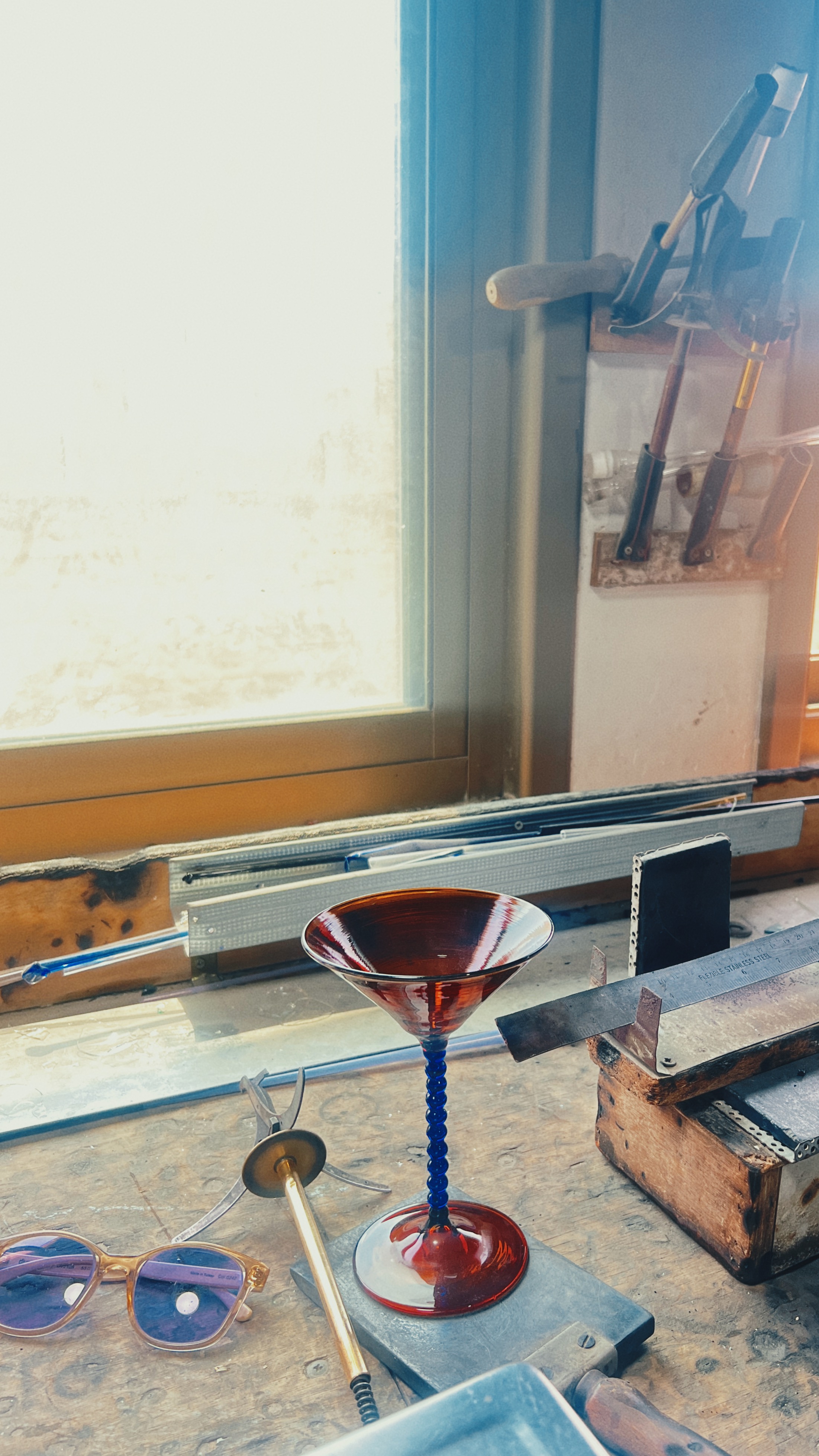
Abu Aker believes in leaving room for artisanal flourishes – details that add more depth to each piece. ‘It's really an honour to participate, even a little, in preserving this medium, which is endangered everywhere – not just here in our region – and highlight Palestinian craftsmanship,’ she reflects.
-
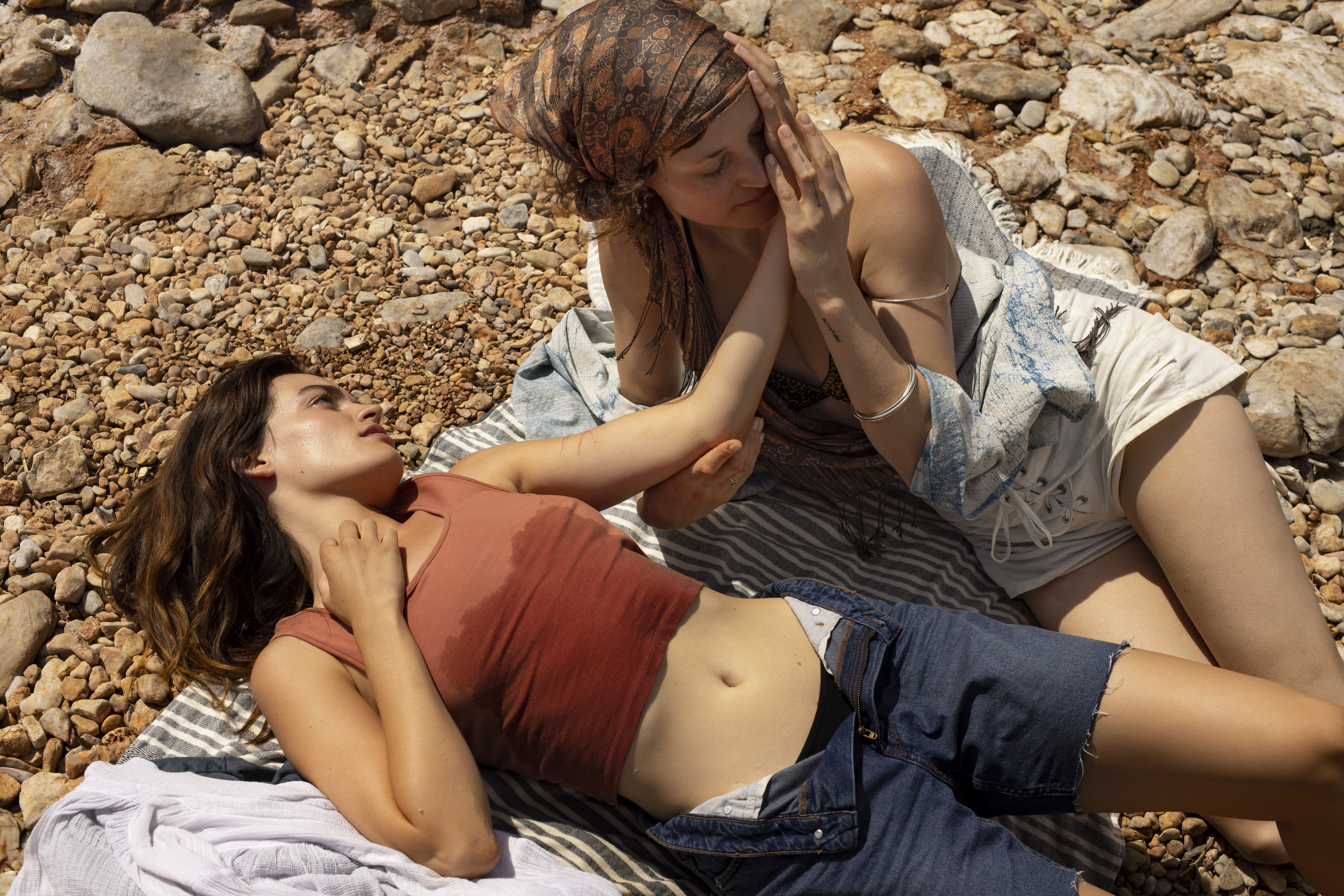 Despite moments of beauty, the ‘Hot Milk’ film adaption drifts aimlessly
Despite moments of beauty, the ‘Hot Milk’ film adaption drifts aimlessly‘Hot Milk’, adapted from Deborah Levy’s 2016 Booker-shortlisted novel, marks Rebecca Lenkiewicz’s directorial debut
-
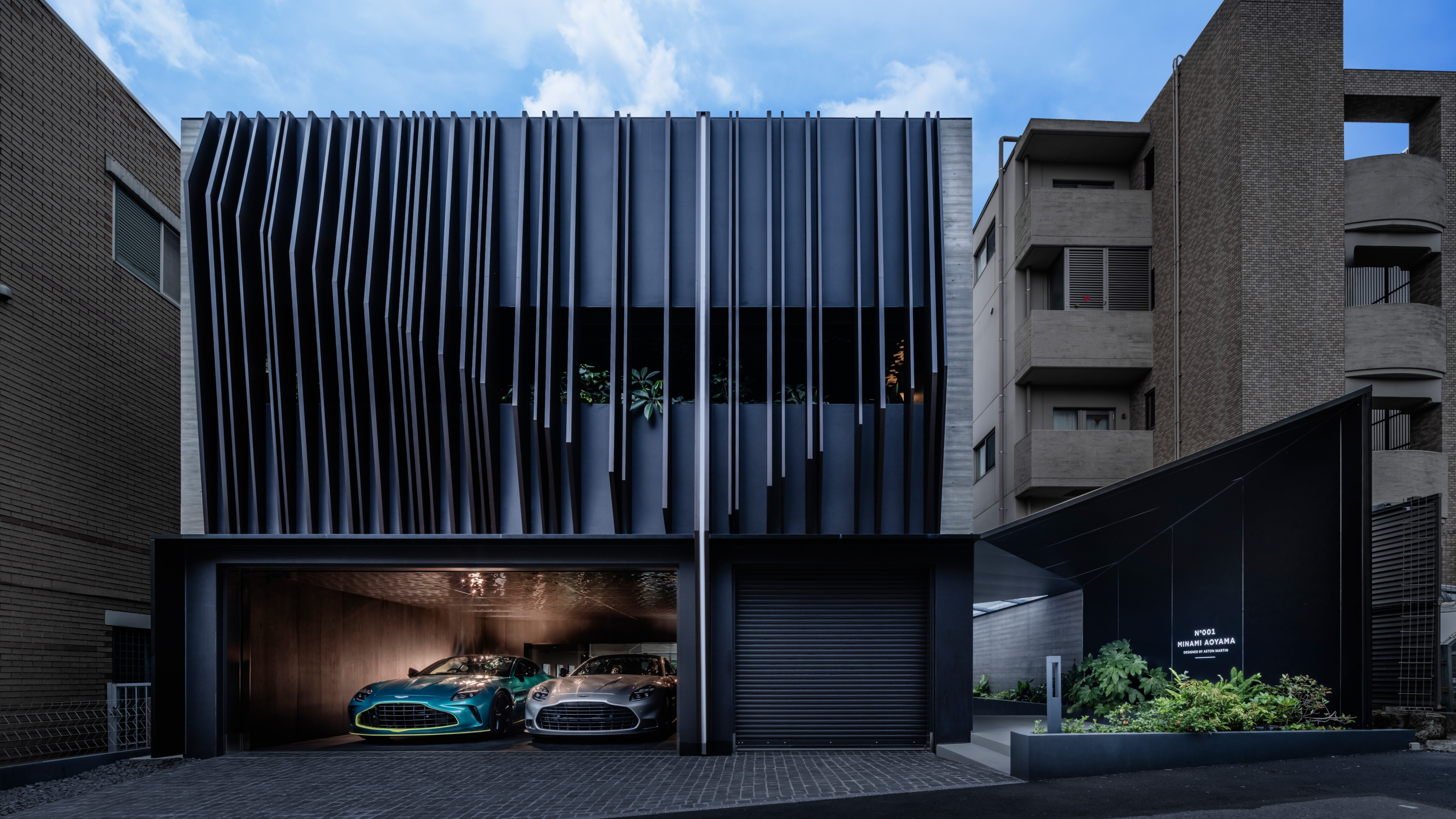 Aston Martin completes its first Tokyo townhouse, crafted by the brand’s design team
Aston Martin completes its first Tokyo townhouse, crafted by the brand’s design teamThis luxurious private house in Tokyo’s Omotesandō neighbourhood offers design and details shaped by Aston Martin, as well as features for the dedicated car collector
-
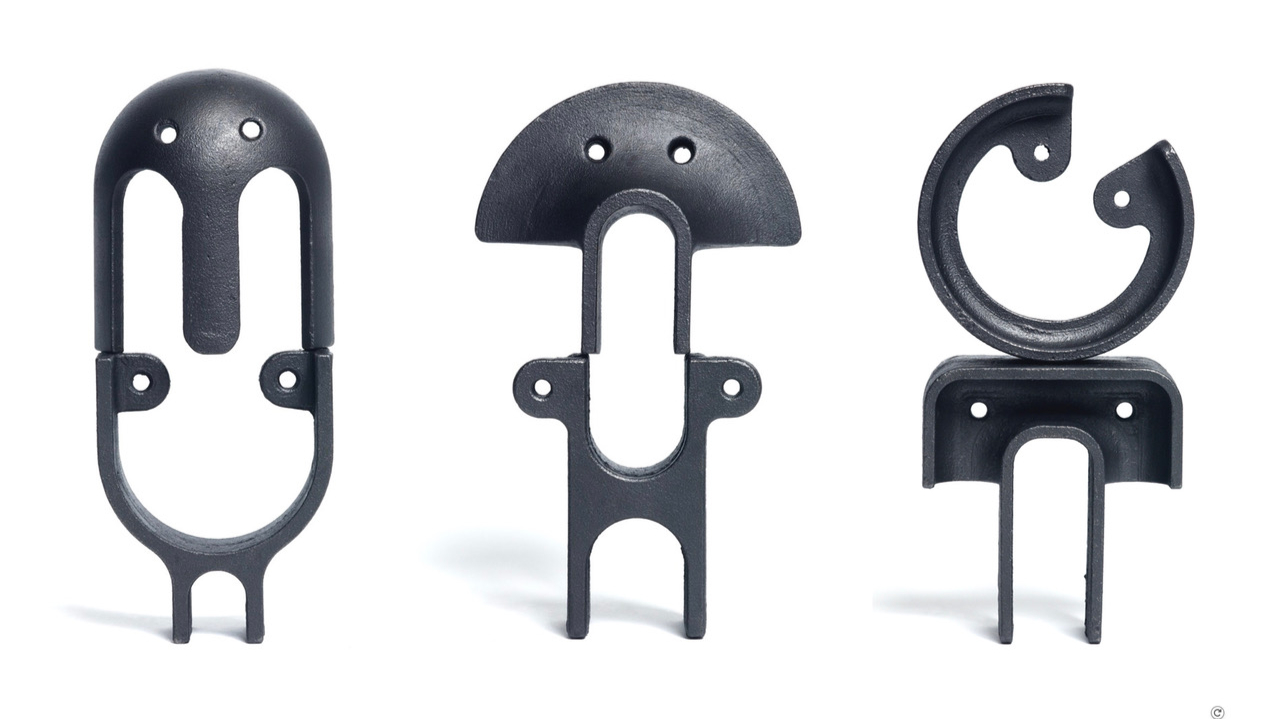 Studiomama’s cast faces capture a sense of childlike joy
Studiomama’s cast faces capture a sense of childlike joyMade in collaboration with one of London’s last traditional foundries, the studio’s ‘Face Castings’ series explores play, perception and the enduring influence of Bruno Munari